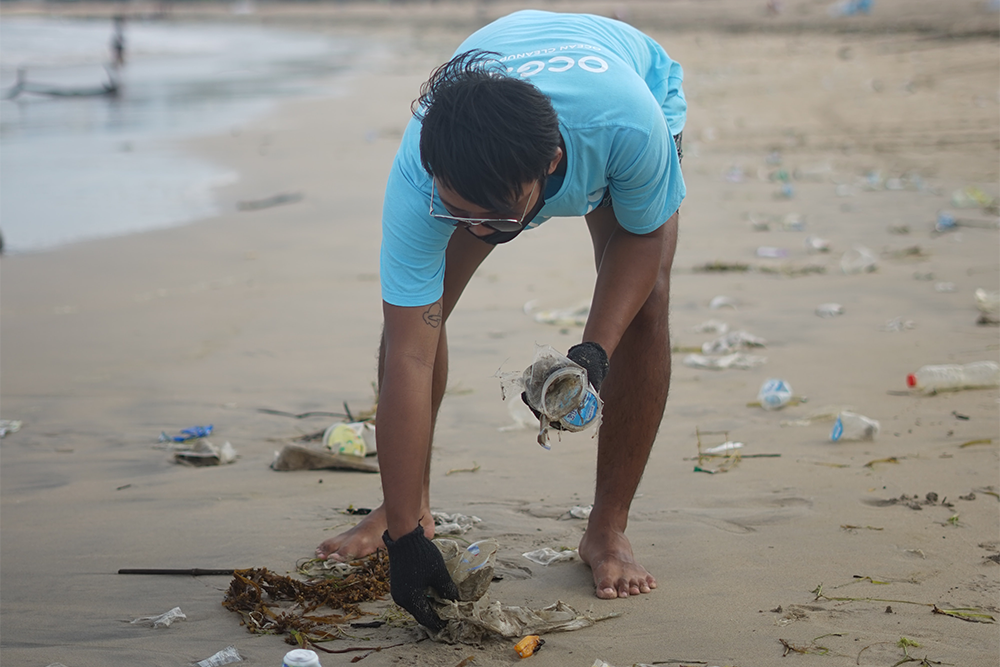
01 Jul 8 Business Sustainability Trends of 2022

8 Business Sustainability Trends of 2022
In support of Plastic Bag Free Day 2022, we examined the online conversation around sustainability in business across news and social media which has grown 50% over the past 12 months compared to the previous 12 months.
Here are eight of the top sustainability trends in this growing discussion.
- Discussions of net-zero commitments has shifted from targets to implementation
The growth in businesses making public net-zero commitments seems to have slowed. However, the discussion around climate targets has grown over the past 12 months, as the focus shifts to implementation. Scrutiny of corporations’ targets and strategies to reach their targets has increased over the last 12 months. The New Climate Institute recently conducted research into 25 of the world’s largest companies and found that their average planned emissions reduction was just 20%.
- Businesses continue to rely on carbon offsetting to reach targets
Rather than reducing emissions, corporations are rely on carbon-offsetting solutions such as afforestation or purchasing carbon credits. Amazon was recently critiqued for its reliance on impermanent nature-based offsetting to reach its goal of net-zero by 2040.
- Greater consumer pushback against greenwashing
Greenwashing refers to the way a corporation might exaggerate its commitment to sustainability. Brands might deploy minor sustainability improvements or messaging to distract from their damaging practices. “59% of environmental claims made by European fashion brands, including Zara and H&M, are unsubstantiated or misleading to consumers and flouted guidelines set by the UK’s Competition and Markets Authority (CMA).” (Changing Markets Foundation in: BBC Future, Isabelle Gerretsen March 2022).
But the number of businesses being called out for greenwashing has grown.
- More partnerships with sustainability NGOs
As part of their push to be more sustainable, businesses are collaborating with NGOs to make their products an ethical choice for consumers.
Fashion house Yves Saint Laurent Beauté has partnered with Rewild Our Earth (Re:wild), an NGO which plans to rewild 100,000 hectares of land by 2030.
Some have critiqued these partnerships however, saying it allows firms to continue damaging practices whilst presenting themselves as going good for the planet by supporting organisations which work towards sustainability.
- Many businesses face criticism for misleading emissions reporting
The lack of clarity and standardisation of emissions data reporting has received growing criticism in 2022. The New Climate Institute found widespread failure on behalf of businesses to account for Scope 3 emissions when making statements on their progress to net-zero. These are emissions which occur throughout the entire value chain. Google’s claim to have been “Carbon Neutral since 2007” excludes Scope 3 emissions that account for 60% of their total GHG emissions.
- Investors are moving to the forefront of the sustainability conversation
Ahead of the G7 summit last year, 457 global investors wrote an open letter calling for governments to establish policies to tackle climate change. They said that failing to do so would mean missing out on vast amounts of future investment.
- ESG investment is on the rise
This year has seen investors emerge into the conversation around sustainability and business. Post-COVID investors are looking to make lower risk investments which are better for the planet. According to Morningstar, investment in sustainable funds was $2.77 trillion in March 2020, 2.5x greater than at the beginning of 2020.
- Consumers and investors are leading the push for ESG transparency
Consumers increasingly want to make informed ethical choices; this has fuelled the push for more transparency from corporations. Investors are also calling for greater transparency to inform how they allocate their capital.
A new rule being proposed by the Securities and Exchange Commission (SEC) will enforce the inclusion of Scope 3 emissions in reports made by businesses. They will also have to declare any potential risks to investors due to climate change.
Separate legislation proposed by the SEC will necessitate the disclosure of information to back up any ESG related claims made by sustainable funds, and such funds will have to allocate at least 80% of funds to ESG-focused assets.
On the issue of plastic pollution, new global regulations are being set in motion by the UN. This will increase transparency on the production of plastic and ensure that rules are consistent across nations. Leaders of nearly 100 global companies were in favour of the proposal.
It’s time to turn net-zero targets into tactics
Businesses must now step up and start enacting real change to make progress toward their sustainability targets. The gap between commitment and action is an increasing focus of public scrutiny. There is, however, hope that as more investors and business leaders join the conversation and governments act, there is an opportunity to create a tangible roadmap toward mitigating climate change.


